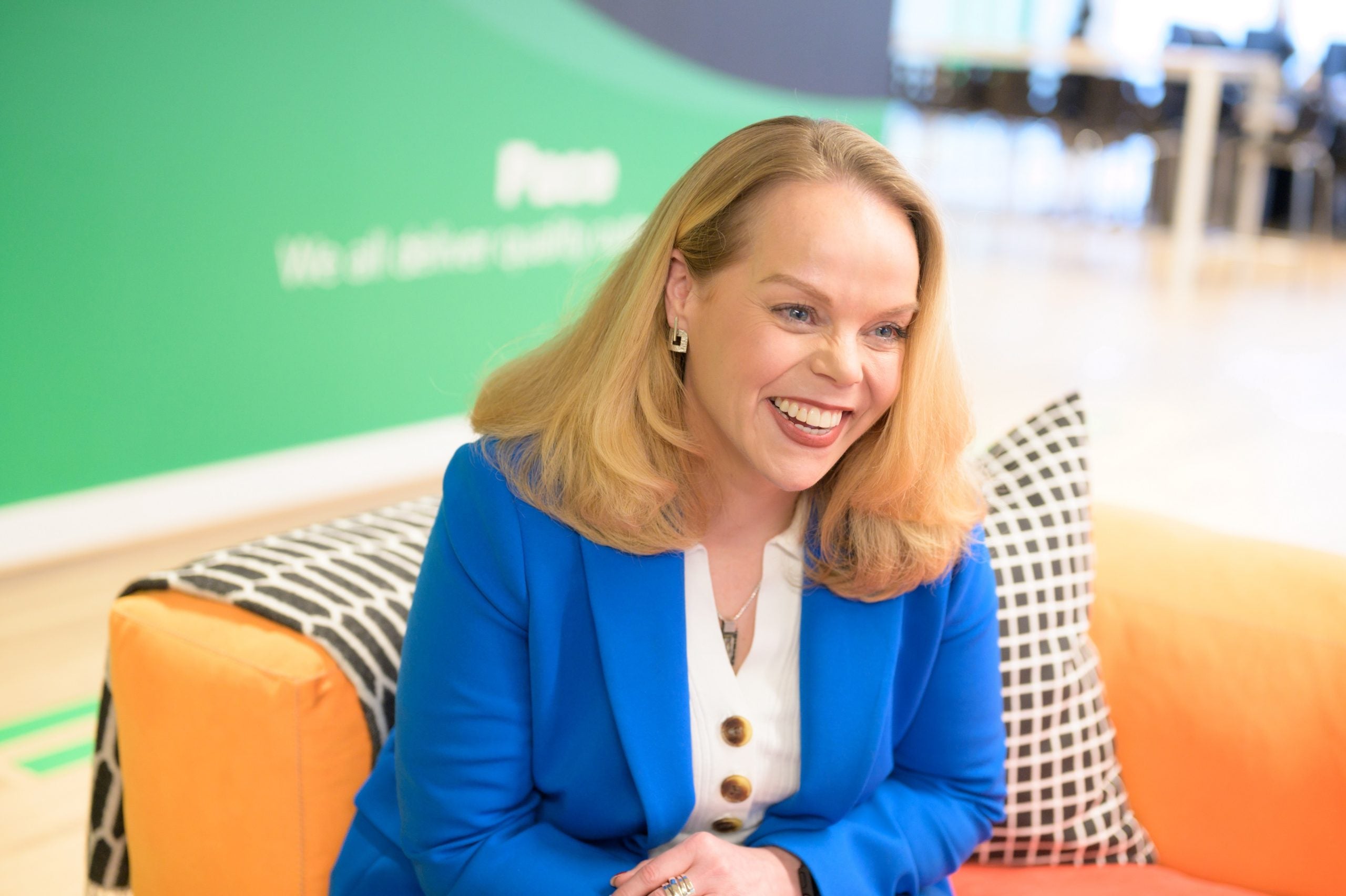
In the ever-evolving landscape of finance and accounting, the need for adept professionals equipped with a diverse skill set has never been more pronounced. Santiago Bedoya-Pardo speaks with the Association of Accounting Technicians (AAT)’s Sarah Beale to discuss how apprenticeship programmes are preparing the next generation of accountants
The AAT offers aspiring accountants the possibility to shape their careers through a series of brand-new apprenticeship programmes.
These programmes, intricately intertwined with AAT’s qualifications, serve as a starting point for individuals eager to carve a niche in the world of accounting.
AAT’s apprenticeships exemplify the fusion of academic rigour and practical acumen, offering a structured pathway for individuals seeking to enter or advance within the accounting sphere. This comprehensive approach not only imparts fundamental knowledge but also cultivates adaptability, responsiveness, and innovative thinking – a trifecta crucial for success in the dynamic realm of finance.
As industries grapple with transformative changes, the demand for professionals capable of navigating through complexities and embracing change has soared. AAT’s apprenticeship programmes, characterised by their versatility and practical orientation, will facilitate new paths in workforce development.
They empower apprentices with not just theoretical understanding but also the agility and resourcefulness to confront real-world challenges head-on, positioning them as the torchbearers of a progressive and adaptable workforce.
How well do you really know your competitors?
Access the most comprehensive Company Profiles on the market, powered by GlobalData. Save hours of research. Gain competitive edge.

Thank you!
Your download email will arrive shortly
Not ready to buy yet? Download a free sample
We are confident about the unique quality of our Company Profiles. However, we want you to make the most beneficial decision for your business, so we offer a free sample that you can download by submitting the below form
By GlobalDataThe Accountant sat down with the AAT’s Sarah Beale to explore the transformative journey offered by their apprenticeships – a journey that nurtures the future leaders of the accounting profession.
The Accountant: Could you outline the main benefits that early-career professionals, without a background in accounting, can expect from participating in the AAT trainee scheme or apprenticeship?
Sarah Beale: At AAT one of our philosophies is about being real-world-ready, and that’s the primary expectation for our training and qualifications – that anyone can take them regardless of their background or experience. That people can start at the level right for them, and they will be supported not only to develop their technical skills, but to get them ready for the working world.
We want our professionals to be able to go straight into the workplace and be productive and relevant, putting into practice powerful skills and knowledge – like communication and ethical practices – as well as ensuring that their understanding of modern accounting is the very best.
The same goes of course for accounting apprenticeships, where learners have the fantastic opportunity to learn those workplace skills by being engrossed in the right environment and learning by practical application of what they need to do every day.
TA: For someone transitioning from a non-accounting field, what kind of support structures or resources does AAT offer to facilitate their learning?
SB: We offer a whole host of online resources – a comprehensive range for those people starting out in accounting right through to those in the full swing of their careers who are looking to continuously upskill through CPD. Everyone is catered for.
That includes access to e-learning and real-life scenarios to help registered students through their journey. We even recently produced a glossary of financial terms that can be confusing for people working in or around accounting, after our research evidenced that people are often nervous about asking what certain terms mean.
TA: In what ways does AAT cater to diverse learning styles and backgrounds, ensuring that individuals from various educational or professional paths can thrive?
SB: Inclusivity is a core principle of what we do. AAT offers qualifications at numerous levels, including entry, so anyone can come in and be supported to understand the role of a bookkeeper or accounting technician and build their skills over the course of their learning.
Additionally, AAT qualifications help to support social mobility and diversity within the workplace. Organisations have fully embraced the need to develop diverse workforces to drive success and AAT qualifications play a pivotal role in helping them to achieve this, by supporting a wider talent pool. We also offer a bursary scheme each year which we hope to grow in the future as a further tool for social mobility.
In addition to the educational support provided, we have new wellbeing modules that we launched last summer to support students with their mental health. I’m especially proud of this and encourage this kind of provision passionately as it’s vital to recognise that we are all human before anything else.
TA: Can you share some examples of success stories from individuals who entered the trainee or apprenticeship scheme without prior experience and excelled in their careers after completing the AAT qualifications?
SB: There are a mass of examples, from people who have gained the qualification to support a non-financially based business, through to those with a more standard accounting career, developing from trainee to CFO.
We’ve seen a whole host of great stories over the years, including all kinds of career changes. We often see people enter the workplace through business or administration roles, and then find that they have a flair for the finance side of things and decide to take on AAT qualifications, often with help from their employers. We’ve even seen much more dramatic changes in career, including ex-footballers pivot into accounting, and of course entrepreneurs who run their businesses and decide to do their own finances.
It is certainly a profession that can have a wide appeal and that so many people will naturally cross paths with in their personal or professional lives.
TA: For candidates without a traditional accounting background, what key foundational skills or traits make someone successful in the AAT trainee scheme or apprenticeship?
SB: A willingness to learn and adapt is very important. Part of our 2030 strategy is about keeping the profession relevant – this is a nod to the ever-changing world influenced by globalisation, technology and more.
Like many careers, the role of an accountant is going to be subject to change as the world around us evolves, so that ability to take on new information, find creative solutions, to be on your toes, is really essential to making sure as a professional you can stay at the forefront and be able to offer employers a modern skillset and understanding – this is something that we work very hard to support our community with.
TA: How does the AAT ensure that the learning curve is manageable and supportive for newcomers to accounting, especially within the context of practical work experience?
SB: With our focus on real-world skills, AAT qualifications are designed to give students practical, technical skills that can be directly applied in the workplace, helping them to become more effective in their roles.
With qualifications spanning levels 1-4, we help businesses and individuals understand what the most suitable, impactful development journey is to meet their needs and ambitions. Again, we also offer wellbeing modules and bite-size learning to ensure that an AAT journey is always as manageable as possible and encourages learners to continue and progress.
TA: Could you detail the mentorship or guidance structures available within the AAT trainee schemes or apprenticeships? How do they aid individuals without accounting backgrounds?
SB: When embarking upon an apprenticeship, there is a focus not just on development of technical, vocational accounting skills but also on the development of wider business-focused power skills such as digital skills and communication.
The very essence of an apprenticeship is on-the-job development where students are mentored and supported both by colleagues within the organisation they work for and also the structured delivery of knowledge, skills and behaviours through training providers and colleges.
TA: In what ways does AAT prepare individuals without accounting backgrounds for the challenges they might face during their studies and then in their work lives?
SB: As mentioned, support is consistent throughout the study period to ensure that every student has access to advice and resources throughout the time they undertake their qualification.
In terms of once they have completed, this is why becoming a member is important – membership enables professionals to really become part of an integrated, global community and have access to lifelong support – from qualification up until retirement, both directly from AAT and their fellow members.
Of course, this comes with the additional tangible benefits that we can provide in terms of ensuring our professionals are always equipped for the big changes in the accounting world, but also from a mental standpoint we know it’s reassuring for members to know they are part of a wider community that can offer them advice, support and solidarity.
In return, AAT also takes its role as a voice for members very seriously. Our people can tell us about the issues in the sector that are affecting them or the changes they would like to see, and we can go to the relevant stakeholders, policymakers and businesses to lobby for those changes on our members’ behalf. It’s a mutually beneficial relationship which allows both our people and our organisation to prosper, progress and enact positive change.
A fresh approach
The AAT apprenticeships promise to equip individuals with foundational knowledge while nurturing adaptability and problem-solving capabilities. Blending classroom learning with real-world application, these programmes enable apprentices to seamlessly navigate through industry shifts, technological advancements and evolving business landscapes.
At the crux of these apprenticeships lies a commitment to nurturing a workforce capable of not only embracing change, but also driving it. The infusion of fresh perspectives, innovative thinking and a penchant for continuous learning within these apprenticeship graduates augurs well for the future of finance. As they step into the professional realm, these individuals embody the ethos of adaptability and versatility – traits that transcend the realm of accounting, shaping the future of a dynamic workforce across industries. AAT’s apprenticeships signify not just a learning experience but a transformative journey – a journey that propels aspiring accountants into the vanguard of a rapidly changing financial landscape, ready to embrace challenges and catalyse innovation. The programmes promise to equip individuals with a diverse and robust skillset for a future where accounting expertise converges with adaptability, innovation and a passion for continual growth.






